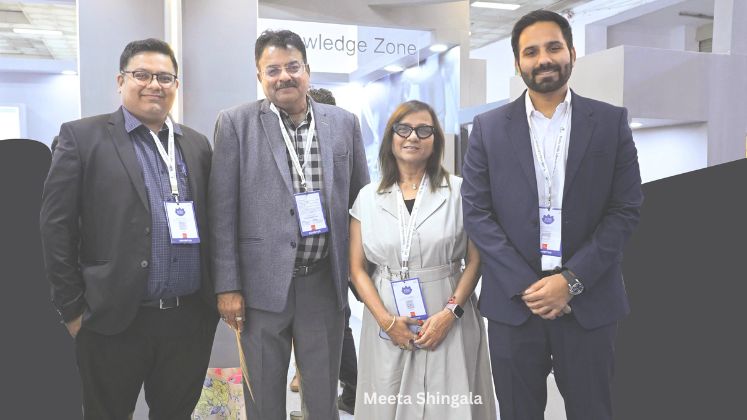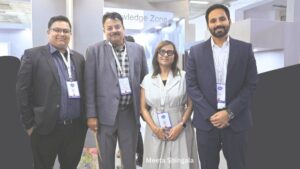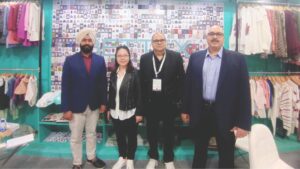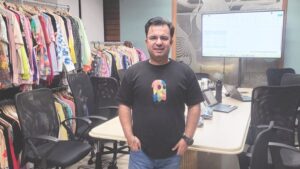As stringent legislations take shape at home and abroad, testing has become crucial for manufacturers to unlock new markets and build buyer trust.
“Stricter sustainability laws worldwide are making buyers more conscious of chemicals used in dyeing, especially for children’s products. Rigorous testing also supports sustainability by eliminating harmful substances, enhancing durability and driving innovation. Testing is no longer just a tick-box exercise,” said Meeta Shingala, Co-founder, Testtex India Laboratories.
Founded in 1988 by Meeta along with her spouse Bharat Shingala, Testtex India provides testing, inspection and certification across industries like textiles, leather, food, packaging and construction. The company operates labs in Mumbai (HQ and Central Lab), Noida and Tirupur and also conducts genetic modification testing for food and cotton.
Testttex is also recognised by ZDHC (Zero Discharge of Hazardous Chemicals) for meeting the ‘Level 1 ZDHC MRSL Conformance’ standard.
“We help manufacturers meet quality and compliance standards through physical, mechanical and restricted substance (RSL) testing. Our goal is to ensure quality and sustainability across the textile supply chain, from raw materials like dyes and chemicals to the final product,” stated Meeta.
Defect identification is the most common issue faced by garment manufacturers. Many manufacturers struggle with defects that show up after a few washes, often due to inconsistencies in raw materials or processing methods. The reason being, manufacturers often source materials from multiple suppliers and are not aware about the origins of a defect.
“Testtex helps by conducting defect analysis and testing both raw materials and finished products to identify the root cause of quality issues,” explained Meeta. Another key challenge manufacturers face is detecting hazardous chemicals, which has become crucial due to regulations like the EU’s Chemicals Strategy for Sustainability, which aims to crackdown on harmful substances and promote safer alternatives. For instance, substances like Alkylphenol Ethoxylates (APEOs), especially Nonylphenol Ethoxylates (NPEOs) and Octylphenol Ethoxylates (OPEOs) are commonly used in detergents, cleaning agents or chemicals used for textile or leather production. These compounds, especially NPEOs, which make up around 90 per cent of APEOs, interfere with hormones and can do serious damage to aquatic life. Moreover, they are highly persistent, making them difficult to degrade.
“We conduct in-depth chemical analysis, audit production units and inspect formulations to detect contamination sources,” said Bharat. Meeta concluded by reiterating that the company proactively updates its testing capabilities to keep up with changing regulations.
Given the growth in the global testing market, valued at US $ 8.05 billion in 2023 and projected to reach US $ 10.74 billion by 2030 with a 4.2 per cent annual growth rate, the importance of testing has never been more evident.







